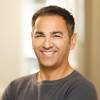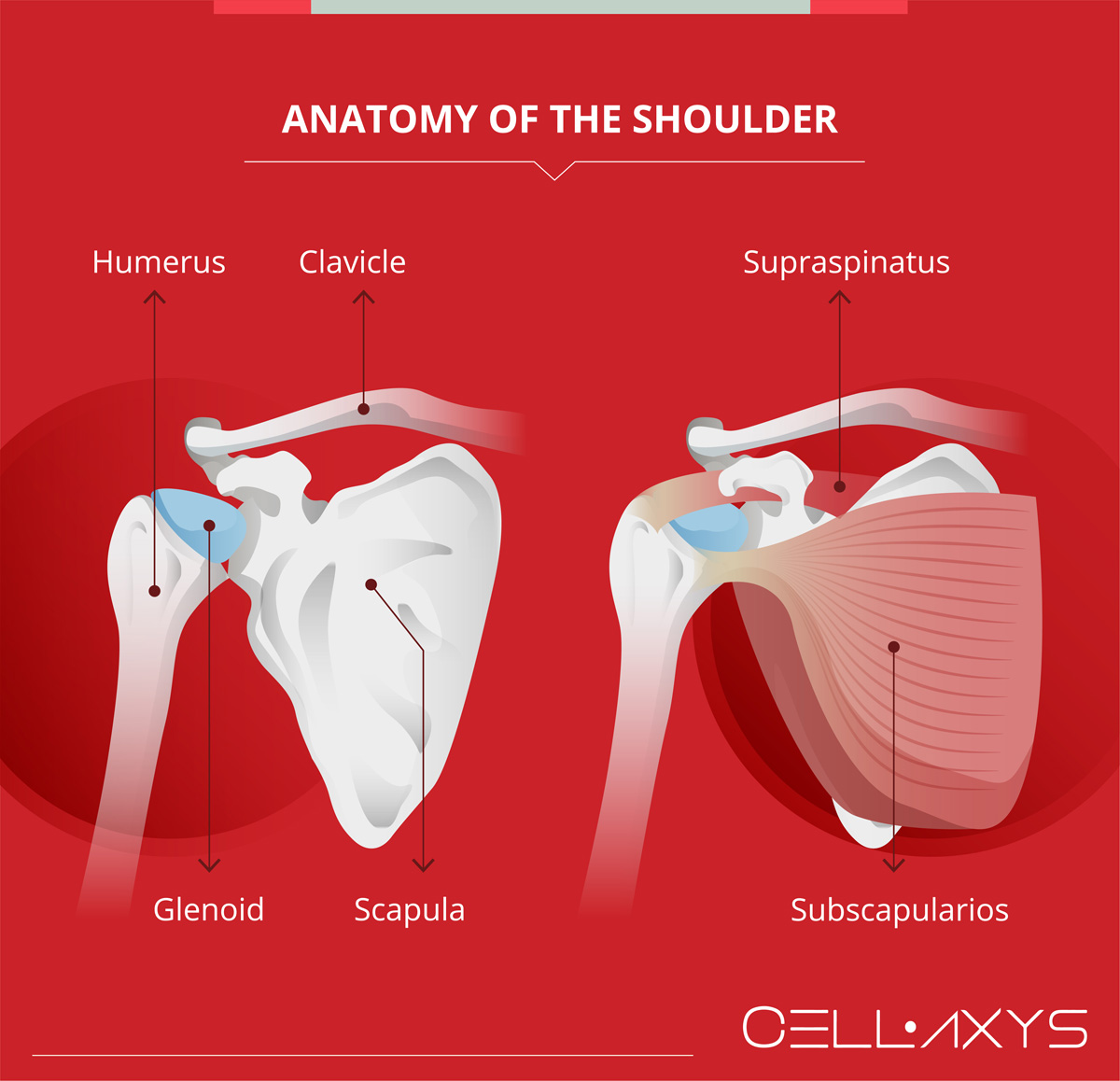Published on: June 24, 2019 | Updated on: January 14, 2024
Shoulder abnormalities, such as shoulder popping without pain, are a common occurrence for many adults. Without the alarming sense of pain or discomfort, many people believe that these benign issues are something to be ignored.
However, simple problems such as shoulder popping may be an indication of much more severe issues to come.
Before seeking consultation for irregularities, it may be wise to try to understand the mechanics of the shoulder to see if your “pops” are truly an issue.
Anatomy of the Shoulder
A typical, healthy shoulder is a combination of muscle, bone, ligaments, tendons, and other soft tissues working in unison to provide controlled movements. The shoulder joint is a complex “ball and socket” joint composed of the:
- Humerus
- Glenoid
- Clavicle
- Scapula (to some degree)
This main “ball and socket” joint is cushioned and protected by soft tissues – cartilage and a “labrum.”
Surrounding the main joint is the rotator cuff which performs the majority of motion for the shoulder. To a lesser degree, the biceps, deltoid, trapezius, and scapular muscles help move the shoulder.
If you are becoming lost in the shoulder anatomy, you are not alone. The shoulder is a ballet of small intricate movements and motions. If only one “dancer,” or muscle in this metaphor, is off timing, then the whole performance falls apart.
In this intricate dance of motion, even the smallest of muscles play an intricate role. Thus, those irritating “popping” sensations may be indicating that the ballet of muscle and movements is perilously close to losing its synchronicity.
Ligament and Tendon Damage, the “Rotator Cuff”
The ligaments and tendons which connect the bones and muscles of the shoulder can become overextended, stretched, injured, or torn. Most commonly, this is called the rotator cuff. The rotator cuff is a complex of 4 tendons that create the fine movements of the shoulder. Injuries to the rotator cuff often cause pain in the outer shoulder and can wake you up at night.
A small injury can lead to many common shoulder issues. As these ligaments and tendons lose their firmness (technically known as “tensile strength”), people tend to lose the fine motor control they once had over their shoulder movements. This loss of control can cause the shoulder to extend further back or forward than intended.
This is often referred to as “instability” and is a sign of many potentially harmful conditions to come. One of the main side effects of this instability is shoulder popping. The ligament damage and subsequent shoulder popping can be potential signs of arthritis, chronic shoulder dislocation, or instability, even without any pain present.
Muscle and Bone Damage
If the muscles and bones of the shoulder have suffered any kind of trauma, be it severe single trauma or mild but repetitive traumas, they may be the source of the shoulder popping you are experiencing. Popping is often from swollen tendons in these cases.
As these traumas take effect, they may alter the natural movements of the shoulder and begin to wear away at the soft tissues which cushion its movements. As these soft tissues degrade, the shoulder bones begin to make contact with the surrounding tendons, muscles, ligaments, and other bones, causing painful irritation.
This irritation eventually causes inflammatory changes which progress to various stages of arthritis. Of course, this shoulder popping may start off without any pain, but it is simply a preliminary warning of potentially greater issues to come.
Soft Tissue Degradation
The soft tissues – specifically cartilage – encase the bones of the shoulder. Cartilage surrounds both the “ball” (the head of the humerus) and the “socket” (the glenoid bone). Cartilage allows the ball and socket to glide smoothly and pain free.
As these soft tissues wear away, they can expose the bone, cause chronic pain, inflammation, and may cause restrictions in the movements of the shoulder. These restrictions may not simply limit the movements of the shoulder, but also create pathways for new movements, movements that avoid triggering pain.
As we grow accustomed to avoiding the pain, the new habituated movements may cause pops and clicks in the shoulder. Though these shoulder pops and clicks may seem relatively harmless, they are in fact due to the bigger issue of worn soft tissues.
When to Consult a Physician
When it comes to shoulder popping without pain, this is a difficult question to answer. On the one hand, the shoulder popping may in fact be benign – it may not be causing any irreparable damage at all, but simply be a nuisance to the person who experiences it.
On the other, it may be a sign of a much larger issue that should be inspected and checked immediately.
The best way to determine this for yourself is to look through your past medical history:
- Have you experienced any shoulder trauma before – bone fractures, muscle or tendon tears, extreme stress, or repetitive movements?
- Is there a history of shoulder pain in the family – could the issue simply be a genetic abnormality that your genes have accounted for?
- What does your past medical history point to in terms of the popping in your shoulder?
If the answer has something to do with past traumas, then you should consult a physician.
How Cellaxys Can Help
While shoulder popping itself can be harmless, the underlying issues indicated by shoulder popping are not. These issues – muscle, bone, tendon, ligament, and soft tissue damage – create a hostile internal environment that can become quite painful.
As the damage to these tissue accumulates and compounds, the shoulder may experience bouts of swelling and inflammation which may only worsen the issue.
The therapies offered at CELLAXYS use the body’s natural regenerative properties to provide a suitable environment for the tissues mentioned above to regrow and restore themselves. The autologous stem cell and platelet-rich plasma therapies we offer can help manage and/or eliminate the pains which may come after chronic shoulder popping.
Sources
Footnotes
- Terry GC, Chopp TM. Functional anatomy of the shoulder. Journal of athletic training. 2000;35(3):248.
- Cofield RH. Rotator cuff disease of the shoulder. JBJS. 1985;67(6):974-9.
- Clifford T, Ventress M, Allerton DM, Stansfield S, Tang JC, Fraser WD, Vanhoecke B, Prawitt J, Stevenson E. The effects of collagen peptides on muscle damage, inflammation and bone turnover following exercise: a randomized, controlled trial. Amino Acids. 2019;51:691-704.
- Buduneli N, Kinane DF. Host‐derived diagnostic markers related to soft tissue destruction and bone degradation in periodontitis. Journal of clinical periodontology. 2011;38:85-105.
- Luime JJ, Verhagen AP, Miedema HS, Kuiper JI, Burdorf A, Verhaar JA, Koes BW. Does this patient have an instability of the shoulder or a labrum lesion?. Jama. 2004;292(16):1989-99.
References
- Why Do My Shoulders Click, Pop, Grind, and Crack?. Healthline. Accessed 9/12/2023.
- What can cause shoulder cracking or popping?. Medical News Today. Accessed 9/12/2023.
- Popping in the Shoulder of a Baseball Pitcher. SportsRec. Accessed 9/12/2023.
CELLAXYS does not offer Stem Cell Therapy as a cure for any medical condition. No statements or treatments presented by Cellaxys have been evaluated or approved by the Food and Drug Administration (FDA). This site contains no medical advice. All statements and opinions are provided for educational and informational purposes only.
Dr Pouya Mohajer
Author
Pouya Mohajer, M.D. is the Director of Spine and Interventional Medicine for CELLAXYS: Age, Regenerative, and Interventional Medicine Centers. He has over 20 years of experience in pain management, perioperative medicine, and anesthesiology. Dr. Mohajer founded and is the Medical Director of Southern Nevada Pain Specialists and PRIMMED Clinics. He has dedicated his career to surgical innovation and scientific advancement. More about the doctor on this page.
Dr Pejman Bady
Contributor
Dr. Pejman Bady began his career over 20 years ago in Family/Emergency Medicine, working in fast-paced emergency departments in Nevada and Kansas. He has served the people of Las Vegas as a physician for over two decades. Throughout this time, he has been met with much acclaim and is now the head of Emergency Medical Services in Nye County, Nevada. More about the doctor on this page.










